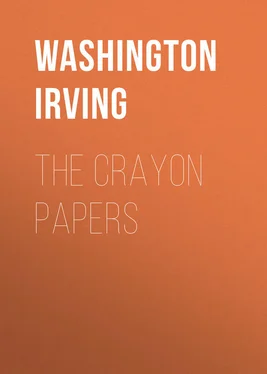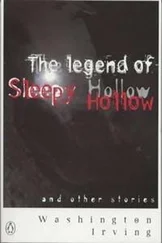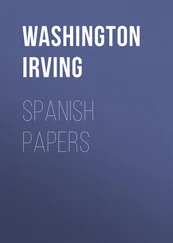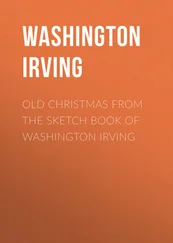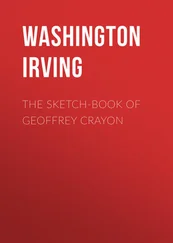Washington Irving - The Crayon Papers
Здесь есть возможность читать онлайн «Washington Irving - The Crayon Papers» — ознакомительный отрывок электронной книги совершенно бесплатно, а после прочтения отрывка купить полную версию. В некоторых случаях можно слушать аудио, скачать через торрент в формате fb2 и присутствует краткое содержание. Жанр: foreign_antique, foreign_prose, на английском языке. Описание произведения, (предисловие) а так же отзывы посетителей доступны на портале библиотеки ЛибКат.
- Название:The Crayon Papers
- Автор:
- Жанр:
- Год:неизвестен
- ISBN:нет данных
- Рейтинг книги:3 / 5. Голосов: 1
-
Избранное:Добавить в избранное
- Отзывы:
-
Ваша оценка:
- 60
- 1
- 2
- 3
- 4
- 5
The Crayon Papers: краткое содержание, описание и аннотация
Предлагаем к чтению аннотацию, описание, краткое содержание или предисловие (зависит от того, что написал сам автор книги «The Crayon Papers»). Если вы не нашли необходимую информацию о книге — напишите в комментариях, мы постараемся отыскать её.
The Crayon Papers — читать онлайн ознакомительный отрывок
Ниже представлен текст книги, разбитый по страницам. Система сохранения места последней прочитанной страницы, позволяет с удобством читать онлайн бесплатно книгу «The Crayon Papers», без необходимости каждый раз заново искать на чём Вы остановились. Поставьте закладку, и сможете в любой момент перейти на страницу, на которой закончили чтение.
Интервал:
Закладка:
While thus holding forth, I cast a side glance to see how Miss Somerville was affected. She had some embroidery stretched on a frame before her, but had paused in her labor, and was looking down as if lost in mute attention. I felt a glow of self-satisfaction, but I recollected, at the same time, with a kind of pique, the advantage she had enjoyed over me in our tete-a-tete. I determined to push my triumph, and accordingly kept on with redoubled ardor, until I had fairly exhausted my subject, or rather my thoughts.
I had scarce come to a full stop, when Miss Somerville raised her eyes from the work on which they had been fixed, and turning to her mother, observed: "I have been considering, mamma, whether to work these flowers plain, or in colors."
Had an ice-bolt shot to my heart, it could not have chilled me more effectually. "What a fool," thought I, "have I been making myself – squandering away fine thoughts, and fine language, upon a light mind and an ignorant ear! This girl knows nothing of poetry. She has no soul, I fear, for its beauties. Can any one have real sensibility of heart, and not be alive to poetry? However, she is young; this part of her education has been neglected; there is time enough to remedy it. I will be her preceptor. I will kindle in her mind the sacred flame, and lead her through the fairy land of song. But after all, it is rather unfortunate that I should have fallen in love with a woman who knows nothing of poetry."
I passed a day not altogether satisfactory. I was a little disappointed that Miss Somerville did not show more poetical feeling. "I am afraid, after all," said I to myself, "she is light and girlish, and more fitted to pluck wild flowers, play on the flageolet, and romp with little dogs than to converse with a man of my turn."
I believe, however, to tell the truth, I was more out of humor with myself. I thought I had made the worst first appearance that ever hero made, either in novel or fairy tale. I was out of all patience, when I called to mind my awkward attempts at ease and elegance, in the tete-a-tete. And then my intolerable long lecture about poetry to catch the applause of a heedless auditor! But there I was not to blame. I had certainly been eloquent: it was her fault that the eloquence was wasted. To meditate upon the embroidery of a flower, when I was expatiating on the beauties of Milton! She might at least have admired the poetry, if she did not relish the manner in which it was delivered: though that was not despicable, for I had recited passages in my best style, which my mother and sisters had always considered equal to a play. "Oh, it is evident," thought I, "Miss Somerville has very little soul!"
Such were my fancies and cogitations during the day, the greater part of which was spent in my chamber, for I was still languid. My evening was passed in the drawing-room, where I overlooked Miss Somerville's portfolio of sketches. They were executed with great taste, and showed a nice observation of the peculiarities of nature. They were all her own, and free from those cunning tints and touches of the drawing-master, by which young ladies' drawings, like their heads, are dressed up for company. There was no garish and vulgar trick of colors, either; all was executed with singular truth and simplicity.
"And yet," thought I, "this little being, who has so pure an eye to take in, as in a limpid brook, all the graceful forms and magic tints of nature, has no soul for poetry!"
Mr. Somerville, toward the latter part of the evening, observing my eye to wander occasionally to the harp, interpreted and met my wishes with his accustomed civility.
"Julia, my dear," said he, "Mr. Mountjoy would like to hear a little music from your harp; let us hear, too, the sound of your voice."
Julia immediately complied, without any of that hesitation and difficulty, by which young ladies are apt to make company pay dear for bad music. She sang a sprightly strain, in a brilliant style, that came trilling playfully over the ear; and the bright eye and dimpling smile showed that her little heart danced with the song. Her pet canary bird, who hung close by, was awakened by the music, and burst forth into an emulating strain. Julia smiled with a pretty air of defiance, and played louder.
After some time the music changed, and ran into a plaintive strain, in a minor key. Then it was that all the former witchery of her voice came over me; then it was that she seemed to sing from the heart and to the heart. Her fingers moved about the chords as if they scarcely touched them. Her whole manner and appearance changed; her eyes beamed with the softest expression; her countenance, her frame, all seemed subdued into tenderness. She rose from the harp, leaving it still vibrating with sweet sounds, and moved toward her father, to bid him good-night.
His eyes had been fixed on her intently during her performance. As she came before him he parted her shining ringlets with both his hands, and looked down with the fondness of a father on her innocent face. The music seemed still lingering in its lineaments, and the action of her father brought a moist gleam in her eye. He kissed her fair forehead, after the French mode of parental caressing: "Goodnight, and God bless you," said he, "my good little girl!"
Julia tripped away, with a tear in her eye, a dimple in her cheek, and a light heart in her bosom. I thought it the prettiest picture of paternal and filial affection I had ever seen.
When I retired to bed, a new train of thoughts crowded into my brain. "After all," said I to myself, "it is clear this girl has a soul, though she was not moved by my eloquence. She has all the outward signs and evidences of poetic feeling. She paints well, and has an eye for nature. She is a fine musician, and enters into the very soul of song. What a pity that she knows nothing of poetry! But we will see what is to be done? I am irretrievably in love with her; what then am I to do? Come down to the level of her mind, or endeavor to raise her to some kind of intellectual equality with myself? That is the most generous course. She will look up to me as a benefactor. I shall become associated in her mind with the lofty thoughts and harmonious graces of poetry. She is apparently docile: besides the difference of our ages will give me an ascendency over her. She cannot be above sixteen years of age, and I am full turned to twenty." So, having built this most delectable of air castles, I fell asleep.
The next morning I was quite a different being. I no longer felt fearful of stealing a glance at Julia; on the contrary, I contemplated her steadily, with the benignant eye of a benefactor. Shortly after breakfast I found myself alone with her, as I had on the preceding morning; but I felt nothing of the awkwardness of our previous tete-a-tete. I was elevated by the consciousness of my intellectual superiority and should almost have felt a sentiment of pity for the ignorance of the lovely little being, if I had not felt also the assurance that I should be able to dispel it. "But it is time," thought I, "to open school."
Julia was occupied in arranging some music on her piano. I looked over two or three songs; they were Moore's Irish melodies.
"These are pretty things!" said I, flirting the leaves over lightly, and giving a slight shrug, by way of qualifying the opinion.
"Oh, I love them of all things," said Julia, "they're so touching!"
"Then you like them for the poetry," said I, with an encouraging smile.
"Oh, yes; she thought them charmingly written."
Now was my time. "Poetry," said I, assuming a didactic attitude and air, "poetry is one of the most pleasing studies that can occupy a youthful mind. It renders us susceptible of the gentle impulses of humanity, and cherishes a delicate perception of all that is virtuous and elevated in morals, and graceful and beautiful in physics. It – "
Читать дальшеИнтервал:
Закладка:
Похожие книги на «The Crayon Papers»
Представляем Вашему вниманию похожие книги на «The Crayon Papers» списком для выбора. Мы отобрали схожую по названию и смыслу литературу в надежде предоставить читателям больше вариантов отыскать новые, интересные, ещё непрочитанные произведения.
Обсуждение, отзывы о книге «The Crayon Papers» и просто собственные мнения читателей. Оставьте ваши комментарии, напишите, что Вы думаете о произведении, его смысле или главных героях. Укажите что конкретно понравилось, а что нет, и почему Вы так считаете.
